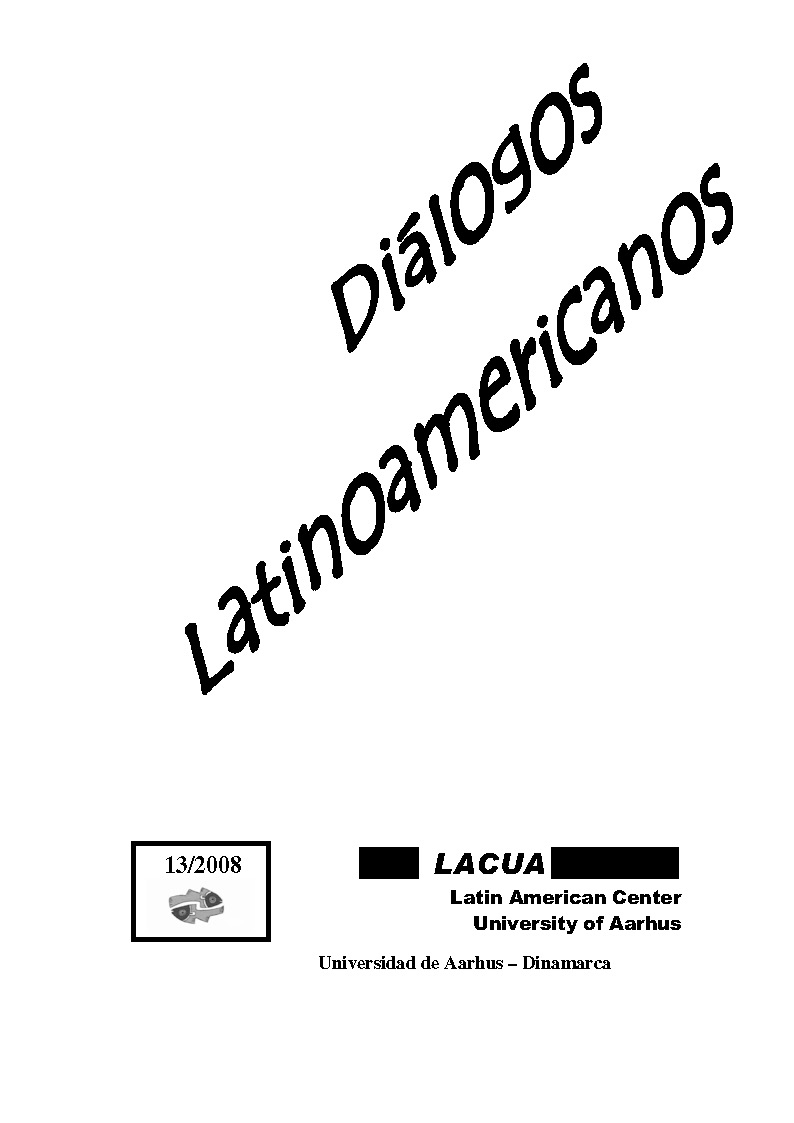América Central
Cambio y continuidad en el proceso de consolidación democrática (2004-2008)
DOI:
https://doi.org/10.7146/dl.v9i13.113602Keywords:
Central America, democracy, electoral process, citizens' democracy, human developmentAbstract
The paper explores the recent presidential electoral processes
being held in Central American countries since 2004. The
electoral processes suggest a shift toward center and left wing
governments. Also some scenarios and perspectives are mentioned
in the democratic consolidation of the isthmus countries.
References
inciertas. Barcelona: Universitat Autònoma de Barcelona y Madrid: Tecnos.
Huntington, Samuel, 1994. A Terceira Onda/A democratização no final do século XX.
São Paulo: Ática.
Lagos, Martha, 2001. “Between Stability and Crisis in Latin America/ How People
View Democracy”. Journal of Democracy, 12 (1), 138-149.
Linz, Juan y Alfred Stepan, 1999. A Transição e Consolidação da Democracia, São
Paulo: Paz e Terra.
Lizcano Fernández, Francisco, 2000. Desarrollo socioeconómico de América Central en
la segunda mitad del siglo XX. Ciudad de México: UAEM y Madrid: AIETI.
Maihold, Günder y Ricardo Córdova, 2002. “Democracia y ciudadanía en
Centroamérica”. En Klaus Bodemer y Eduardo Gamarra, comp. Centroamérica
2020/ Un nuevo modelo de desarrollo regional. Caracas: Editora Nueva
Sociedad, 301-329.
PNUD, 2004. A Democracia na América Latina/ Idéias e contribuições. Santana do
Parnaíba: Naciones Unidas.
Rouquié, Alain, 1994a. Guerras y paz en América Central. Ciudad de México: Fondo de
Cultura Económica.
_____, 1994b. Las fuerzas políticas en América Central. Ciudad de México: Fondo de
Cultura Económica.
Downloads
Published
How to Cite
Issue
Section
License
Counting from volume 31 (2022), articles published in Diálogos Latinoamericanos are licensed under CC-BY 4.0. Read more about the license terms here https://creativecommons.org/licenses/by/4.0/.
No Creative Commons license applied on volumes 1-30. All rights reserved by the authors. Readers may download, read, and link to the articles, but they cannot republish the articles.
With the publication of volume 31 (2022), authors retain the full copyright to their articles and give Diálogos Latinoamericanos the right to the first publication. Authors also retain copyright to earlier versions of manuscripts, such as the submitted (pre-print) and the accepted manuscript (post-print).
Copyright to articles published in volumes 1-30 is held by the authors.





